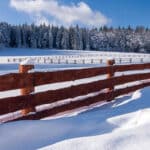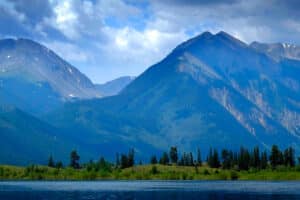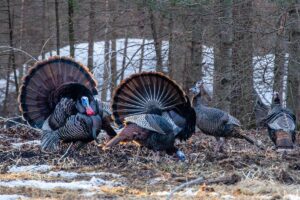I have to admit; I don’t particularly enjoy talking about the environment. In fact, I try to avoid it if it is anything beyond the current weather needs of our crops or soil. It’s a hot button for some, so perhaps I am just leery of pushing it. It can also get complex and the verbiage can start sailing over my head pretty quickly. This might be a unique personality trait but I get the sense other land professionals agree with me. I get busy in the day-to-day tasks of my job, and the larger scale or “macro” environment chatter passes me by. I totally understand the importance and like to think I am not being naive with a certain level of apathy I might have. I am also willing to admit that the time has come for me, and perhaps others like me, to change. The time is coming where farm managers won’t be able to get by with the basics of environmental small talk and what regulations might be in place.
This became clear to me recently when I was privileged to participate in a “Next Gen” program in Springfield sponsored by Dupont Pioneer. We spent a day and a half in and around the Capital hearing from professionals in the governmental and regulatory arena. The take away was obvious. There are some real serious and valid concerns regarding where we stand as an industry and how we handle our farms. Councils, Coalitions, Alliances, etc. are forming (and with sound reasoning) to see change implemented. We heard from the Illinois Council on Best Management Practices, Environmental Protection Agency, and the Alliance for Sustainable Agriculture. Those present got the sense that some of these efforts are in their infancy but will become much hotter topics of discussion in the years to come. If I was more qualified I could write several articles on the ongoing water rights issues across the nation. That will garner most of the headlines but it doesn’t end there. Nutrient stewardship, field print calculators, cover crops, increased organic practices; the list could go on until you get bored and stop reading my article.
Yet another facet that environmental chatter infiltrates is the slew of ongoing energy projects throughout the Midwest. My company’s footprint is comparatively small to others but none the less we have multiple clients greatly affected by three massive energy undertakings in West Central Illinois alone. Ameren has been battling for over a year with courts and Illinois Commerce Commission but a very large transmission line is darting through this area. Dakota Access LLC is ramping up their efforts that will see crude oil transported from the Bakken and Three Forks through North Dakota, South Dakota, and Iowa, finally arriving at a crude oil hub near Patoka, Illinois. The “Grain Belt Express Clean Line” is the newest energy project in our area. Clean Line Energy Partners is attempting to capture wind energy from Western Kansas and transmit it to the Illinois and Indiana border. There are always two sides to these energy projects and this article isn’t about me firmly stepping on either one. The guarantee with these, however, is that they are always heavily debated. The proposed environmental friendliness will be a banner waved by the companies proposing these projects. “Clean Energy”, “Clean Power” and “Renewable Energy” will become buzz words as these projects try to gain traction and land owner cooperation.
The game is changing on multiple levels but perhaps none other more quickly than environmental concern and subsequent regulation. I haven’t been in the industry even nine years but when recollecting on what the landscape looked like when I started, I see a totally different world. I had no idea what “fracking” was, or if that word even existed. I would not have predicted I would see a honey bee on the cover of TIME magazine nor would I have anticipated the depth of the ongoing WOTUS debate. I hope to be in this profession a long time. The changes I and other colleagues will see is most likely indescribable.
Farming can be very generational. I grew up in the 80’s/90’s going to my grandparents on the weekend. I lost my Grandpa late last year but we loved talking about the “olden days” and my memories of watching him farm as a child. In retrospect, the “olden days” we spoke of aren’t all that old. The world moves quickly. Think about what the industry looked like when you started. Farmers are doing things today that would shock their predecessors. We will have to adapt and be savvy when it comes to these environmental issues. So let’s educate ourselves, have an open mind, and prepare for dialogue to get tricky at times. Most importantly, let’s treat Mother Earth kindly and prepare to show her respect but she is going to be demanding it in the future.
This content may not be used or reproduced in any manner whatsoever, in part or in whole, without written permission of LANDTHINK. Use of this content without permission is a violation of federal copyright law. The articles, posts, comments, opinions and information provided by LANDTHINK are for informational and research purposes only and DOES NOT substitute or coincide with the advice of an attorney, accountant, real estate broker or any other licensed real estate professional. LANDTHINK strongly advises visitors and readers to seek their own professional guidance and advice related to buying, investing in or selling real estate.










Add Comment